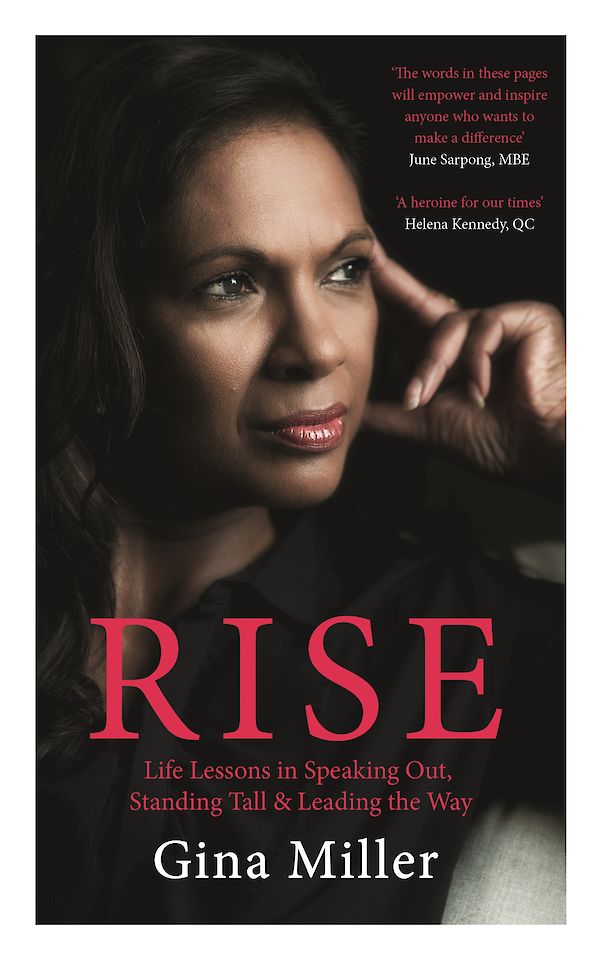Book review: Gina Miller fails to Rise to the occasion in her debut memoir

The case of Gina Miller is a peculiar one. Few political outsiders burst onto the scene so quickly and with such force as this former City investment manager, who has whipped up anger and hope alike since entering the boxing ring of Brexit.
As its title suggests, Rise is a book in which Miller sets out to chart the history of her own upwardly mobile story: her happy childhood learning law from her father under the mango trees in Guyana; her struggles in bringing up a child with learning difficulties on a low income in London; her two failed marriages, including one to a man who later ran for the anti-immigration English Democrats party; and of course, her successful High Court battle to challenge the government’s authority to leave the European Union without parliamentary approval.
It is that last and most recent part of the story, in which she almost single-handedly found herself taking on Downing Street over what became a landmark case, that has propelled Miller’s name into the public domain, and made her a heroine for Remainers, but for some Brexiteers a hate-figure (not least, she claims, because of the colour of her skin).
Dramatic stuff, and it could have made Rise more of a page-turner.
As it is, however, the memoir reads like a slightly muddled hodgepodge of random anecdotes, political beliefs and self-help advice for young women: a book that drifts in and out of thoughts about the past, the present and the future with clunky prose that fails to bring all three together.
Perhaps the most readable moments come when Miller shares her experiences around the heated time in which she rose to prominence.

(Source: Canongate)
In one chapter she tells of being confronted by the hardnosed TV interviewer Andrew Neil, who had asked the former model whether her campaign was merely a “rich woman’s hobby”, only to find out after the cameras turned off that Neil himself was about to shoot off on holiday to the south of France.
The book would be a far more gripping read were such gossipy insights more prevalent.
And yet for all its stylistic faults, Rise does make one thing abundantly clear: Gina Miller wishes her rise to continue.
She has so far survived the fight intact, and with rumours of a Liberal Democrat leadership bid, her foray onto the messy front line of British politics shows no sign of abating any time soon.
With a cover that makes it look like the memoir of a budding American presidential candidate, Rise is a book that seeks to assure us of Miller’s virtues; but what it really reveals is the extent of her ambition.